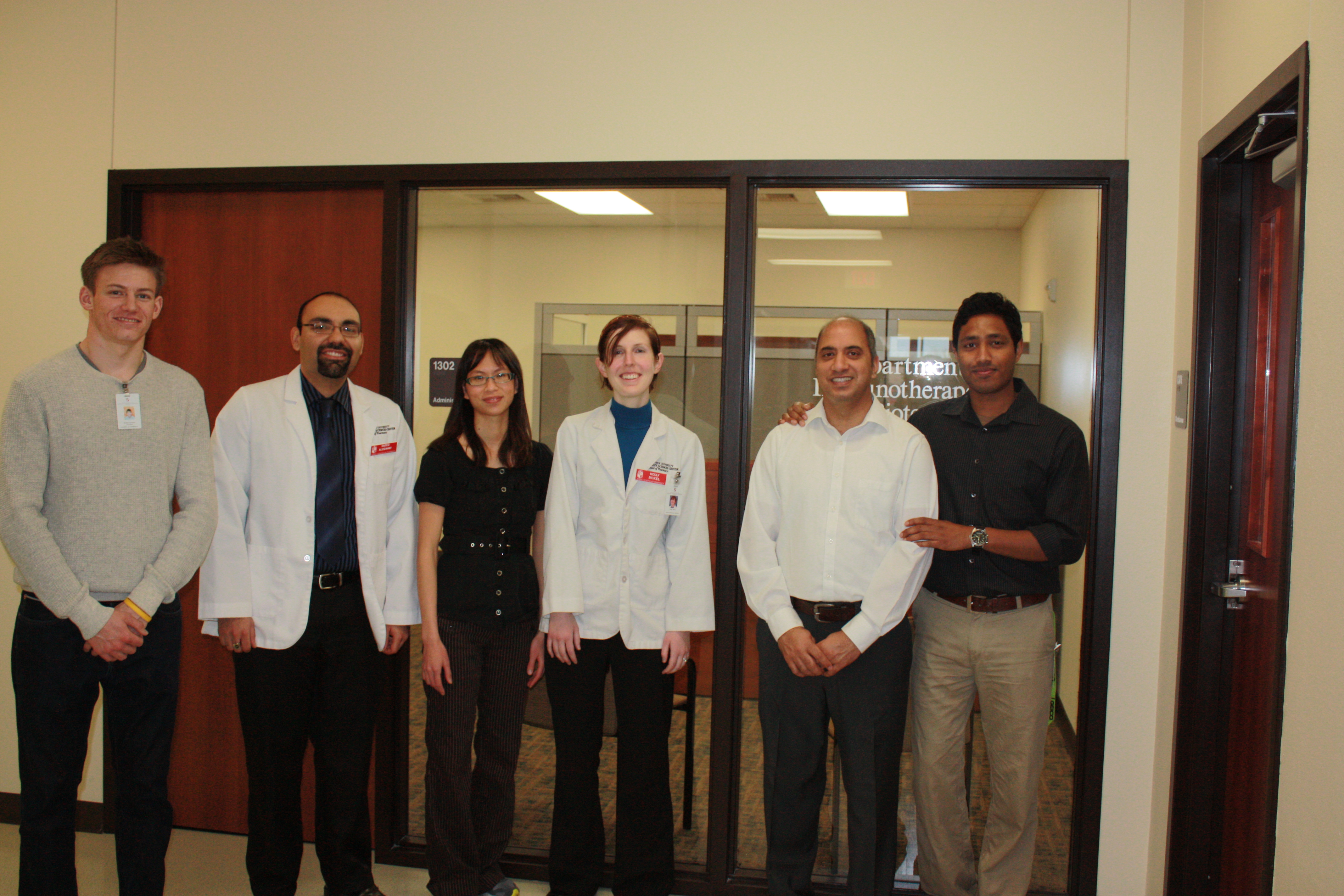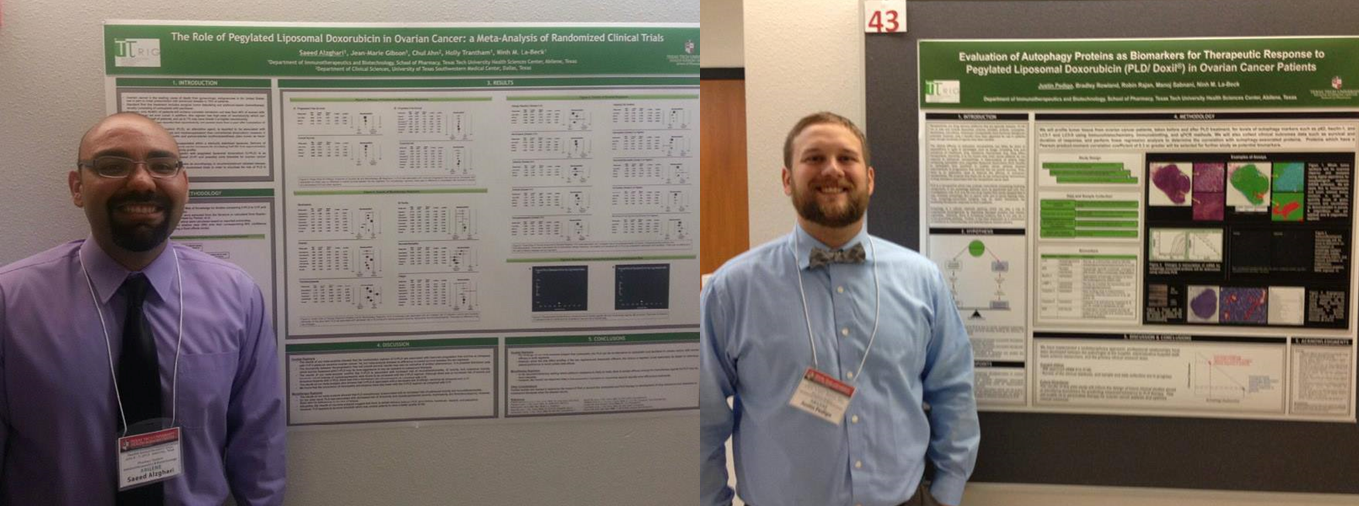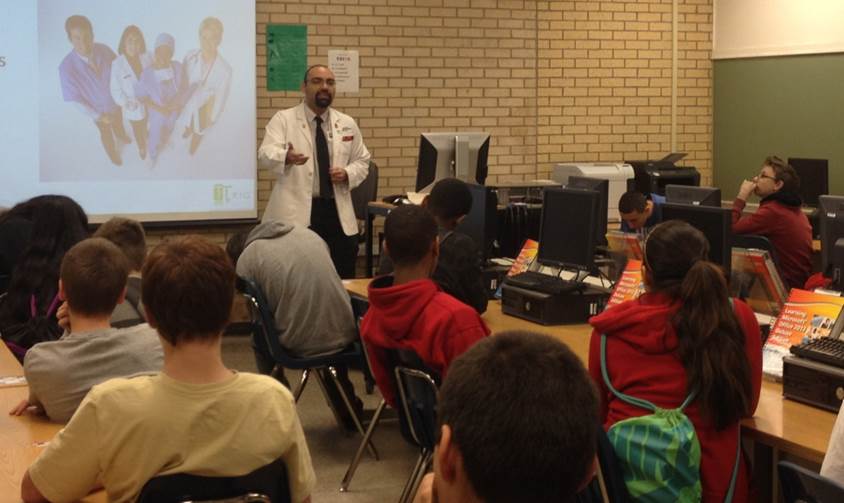About This Project
Delivering drugs to tumors while avoiding drugs in normal tissue remains a major challenge in the treatment of cancer. Nanoparticle carriers enable us to target drugs to tumors and decrease toxicity. However, most failed to improve patient survival. We want to know whether nanoparticles can cause tumors to grow, thus offsetting the benefits of targeted drug delivery. This knowledge is critical to develop safer and more effective cancer treatments.
Ask the Scientists
Join The DiscussionWhat is the context of this research?
Nanoparticles are used as carriers to deliver drugs to tumors and have been shown to improve tolerability of chemotherapy. However, they have not produced major gains in patient survival. We recently published our findings that a lipid nanoparticle, similar to that currently used in patients, significantly enhanced tumor growth. This was associated with a diminished immune response against cancer cells and increased growth of tumor blood vessels. Although nanoparticles have been shown to activate or inhibit the immune system, the mechanisms by which this occurs and the consequences are largely unexplored. Lack of such knowledge is a critical barrier making major advances in cancer drug delivery highly unlikely.
What is the significance of this project?
Our group is the first to show that nanoparticles can alter the antitumor immune response and enhance tumor growth. This could explain why nanoparticle drugs have failed to improve survival despite better drug delivery to tumors. This project is expected to address a critical gap in current understanding of how they interact with cells in our body. This can lead to identification of new drug targets and development of drug design strategies with potential to significantly improve the treatment of cancer and prolong patient lives. Our studies will be conducted with a lipid nanoparticle currently used in cancer patients therefore our findings are expected to have a direct and swift impact on the treatment of cancer.
What are the goals of the project?
In order for us to improve the anticancer effects of nanoparticle drugs, we need to understand how they affect the function of cells in the body. The goal of this specific project is to understand the effects of lipid nanoparticles on tumor blood vessel growth. This is especially important because cancer can only progress if it is able to grow new blood vessels.
Budget
We are seeking funding for one component of our project aimed at understanding how lipid nanoparticles promote growth of tumor blood vessels. We will conduct experiments in cultured cells treated with lipid nanoparticles and other drug treatments. We will evaluate the production of molecules known to regulate blood vessel growth, and will evaluate blood vessel cells for proliferation, migration, and vessel formation.
Meet the Team
Team Bio
Shortly after my family immigrated to the United States, my grandfather was diagnosed with prostate cancer. I was only eight but I remember the fear and confusion we experienced because we did not comprehend his diagnosis or care. I decided then that I would do everything in my power to understand and eradicate cancer.
The drugs used to fight my grandfather's cancer, and later my grandmother's, were ravaging their bodies almost as much as the cancers. This project is important to me because it will enable me to find a better way to target and deliver drugs to patients.
I trained first as a physician assistant and later studied pharmacotherapy at UNC-Chapel Hill where I received my PharmD. I went on to study the pharmcology of anticancer nanoparticles during a fellowship at UNC and am now at Texas Tech where my lab is investigating the interactions between nanoparticles and cells in our bodies.
Lab Notes
Nothing posted yet.
Additional Information
A lipid nanoparticle (liposome) with chemotherapy encapsulated within. The goal is to release the chemotherapy in the tumor tissue and not in normal tissue.
Liposome treatment is associated with increased blood vessel growth in tumors compared to controls (vehicle).
Tumor-associated macrophages (purple) take up liposomes (green) whereas other immune cells (red) do not.
An immune synapse (cell-cell communication) is also shown on the right.
Members of the La-Beck Laboratory (2013) include research technicians, pharmacy students, graduate students, and undergraduates.
Two pharmacy students from the La-Beck laboratory presenting their research on anticancer nanoparticles at a conference.
T-RIG is a student organization I founded at Texas Tech in 2010 to encourage pharmacy students to become involved in research and to give them the mentoring they need to succeed. One of T-RIG's hallmark intiatives is educational outreach to promote science education and careers. Last year we reached over a thousand middle school students in Abilene, TX.

Banner image shows a cross-section of a liposome; originally posted by the Gates Foundation on https://www.flickr.com/photos/gatesfoundation/5659...
Project Backers
- 13Backers
- 27%Funded
- $806Total Donations
- $62.01Average Donation





